Invest
Morrison urged to drop gas-led recovery after new global warning
The International Energy Agency has found that countries like Australia need to transition their energy grid within 14 years to reach net zero, defying Prime Minister Scott Morrison’s gas-led economic recovery.
Morrison urged to drop gas-led recovery after new global warning
The International Energy Agency has found that countries like Australia need to transition their energy grid within 14 years to reach net zero, defying Prime Minister Scott Morrison’s gas-led economic recovery.

Australian politicians are being urged to abandon new coal, gas and oil investments after a major report found that Australia must end its expansion now as part of the world’s solution to net zero emissions.
Prime Minister Scott Morrison has previously outlined his vision for a gas-led economic recovery from the coronavirus pandemic, declaring that the cheap and reliable power will help boost the economy.
Under the proposal, the government would avoid any supply shortfalls in the gas markets as well as unlock five key gas basins to ‘reset the gas market and create a more competitive and transparent gas hub’.
As part of the government’s gas-led recovery, it announced on 18 May that it would spend an additional $600 million on a new Kurri Kurri gas plant in NSW Hunter Valley.
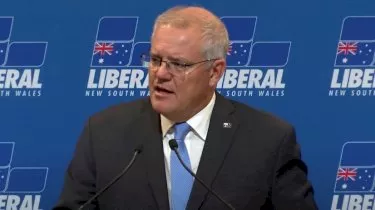
In a statement, Energy Minister Angus Taylor noted the plant would secure reliable and affordable energy for NSW, following the closure of the Liddell power station.
“Cheap power is crucial to ensuring families, businesses and job-creating industries in NSW can thrive, which is why we are committed to replacing the energy generated by Liddell to keep prices down,” Mr Taylor said.
“This project will deliver flexible gas generation to replace Liddell and maintain reliable power alongside Australia’s world-leading investment in renewables.”
However, a new report by the International Energy Agency (IEA) found that in order for the world to reach net zero, progressive economies such as Australia will need to reach net zero by 2035.
While not telling Australia to completely abandon its gas, the report found that increasing global demand for low‐carbon hydrogen in the net zero emissions (NZE) provides a means for countries to export renewable electricity resources that could not otherwise be exploited.
“For example, Chile and Australia announced ambitions to become major exporters in their national hydrogen strategies. With declining demand for natural gas in the NZE, gas‐producing countries could join this market by exporting hydrogen produced from natural gas with carbon capture, utilisation and storage,” the report said.
The Climate Council of Australia’s head of research, Simon Bradshaw, described it as yet another nail in the coffin for fossil fuels.
“Instead of spending public money on gas, which will increase electricity prices and worsen climate change, Australia can and should be working towards net zero emissions by 2035, and capitalising on the benefits of leading the global transition to renewables,” said Mr Bradshaw.
The report, titled IEA’s Net Zero by 2050: A Roadmap for the Global Energy Sector, outlines how the transition to net zero can create 14 million new jobs by 2030, almost three times more than the jobs that will be lost as fossil fuels decline.
“The IEA’s pathway to this brighter future brings a historic surge in clean energy investment that creates millions of new jobs and lifts global economic growth,” Fatih Birol, the IEA executive director, said.
“Moving the world onto that pathway requires strong and credible policy actions from governments, underpinned by much greater international cooperation.”
Australia’s Climate Council agrees, highlighting how Australia is uniquely positioned to benefit from an energy transition.
“As one of the sunniest and windiest countries on earth, Australia has everything we need to be a global renewable energy superpower and create good jobs in new clean energy industries,” said Mr Bradshaw.
“While states and territories are getting on with job-creating clean energy projects that reduce emissions and electricity bills, the federal government has its head in the sand,” he concluded.
About the author

About the author


Commodity
Gold's remarkable surge in 2025 sets the stage for a volatile 2026
Gold has experienced a stellar year in 2025, achieving over 50 all-time highs and delivering a return exceeding 60%, making it one of the top-performing assets. This impressive performance has been ...Read more

Commodity
Scenic Eclipse launches fifth Antarctica season with new submersible, private jet transfers and helicopter experiences
Scenic Discovery Yachts has commenced its fifth Antarctica season, introducing new ultra-luxury experiences including private jet transfers, advanced helicopter excursions and a new Scenic Neptune ...Read more

Commodity
Is crypto getting the shaft for a big gold re-polish?
While the spotlight shines on trendy cryptocurrencies, investors evidently haven’t lost interest in traditional and tangible commodities like precious metals. Read more

Commodity
Morrison’s gas-led recovery sees manufacturers ‘held to ransom’ by gas cartel
Australia’s manufacturing sector and its workers are being ‘held to ransom’ by the gas cartel, despite the Morrison government promising cheap gas as a key policy in the COVID-19 recovery planRead more
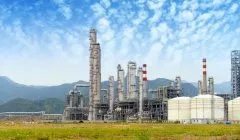
Commodity
‘Investors should take note’: Gas-led recovery to lead to stranded assets
Australia’s gas-led economic recovery could be relying on inaccurate financial assumptions, new research has revealed. Read more
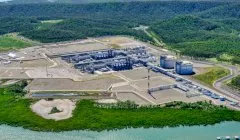
Commodity
Credibility up in flames as government opens 21 new gas and oil exploration sites
Climate groups are saying the Morrison government lacks any credibility when it comes to climate change after it announced 21 new gas and oil exploration areas. Read more
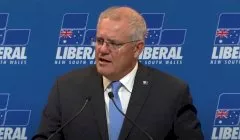
Commodity
Taxpayers to bear brunt of Morrison’s $2bn pledge to oil refineries
Taxpayers are set to be on the hook for up to $2 billion over the next decade as the government commits to protecting two oil refineries. Read more
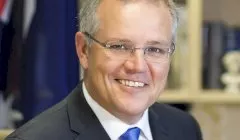
Commodity
Government unveils $1bn energy deal
The Morrison government has announced a $1.1 billion energy and emissions agreement between the federal and South Australian state government. Read more

Commodity
Gold's remarkable surge in 2025 sets the stage for a volatile 2026
Gold has experienced a stellar year in 2025, achieving over 50 all-time highs and delivering a return exceeding 60%, making it one of the top-performing assets. This impressive performance has been ...Read more

Commodity
Scenic Eclipse launches fifth Antarctica season with new submersible, private jet transfers and helicopter experiences
Scenic Discovery Yachts has commenced its fifth Antarctica season, introducing new ultra-luxury experiences including private jet transfers, advanced helicopter excursions and a new Scenic Neptune ...Read more

Commodity
Is crypto getting the shaft for a big gold re-polish?
While the spotlight shines on trendy cryptocurrencies, investors evidently haven’t lost interest in traditional and tangible commodities like precious metals. Read more

Commodity
Morrison’s gas-led recovery sees manufacturers ‘held to ransom’ by gas cartel
Australia’s manufacturing sector and its workers are being ‘held to ransom’ by the gas cartel, despite the Morrison government promising cheap gas as a key policy in the COVID-19 recovery planRead more

Commodity
‘Investors should take note’: Gas-led recovery to lead to stranded assets
Australia’s gas-led economic recovery could be relying on inaccurate financial assumptions, new research has revealed. Read more

Commodity
Credibility up in flames as government opens 21 new gas and oil exploration sites
Climate groups are saying the Morrison government lacks any credibility when it comes to climate change after it announced 21 new gas and oil exploration areas. Read more

Commodity
Taxpayers to bear brunt of Morrison’s $2bn pledge to oil refineries
Taxpayers are set to be on the hook for up to $2 billion over the next decade as the government commits to protecting two oil refineries. Read more

Commodity
Government unveils $1bn energy deal
The Morrison government has announced a $1.1 billion energy and emissions agreement between the federal and South Australian state government. Read more









